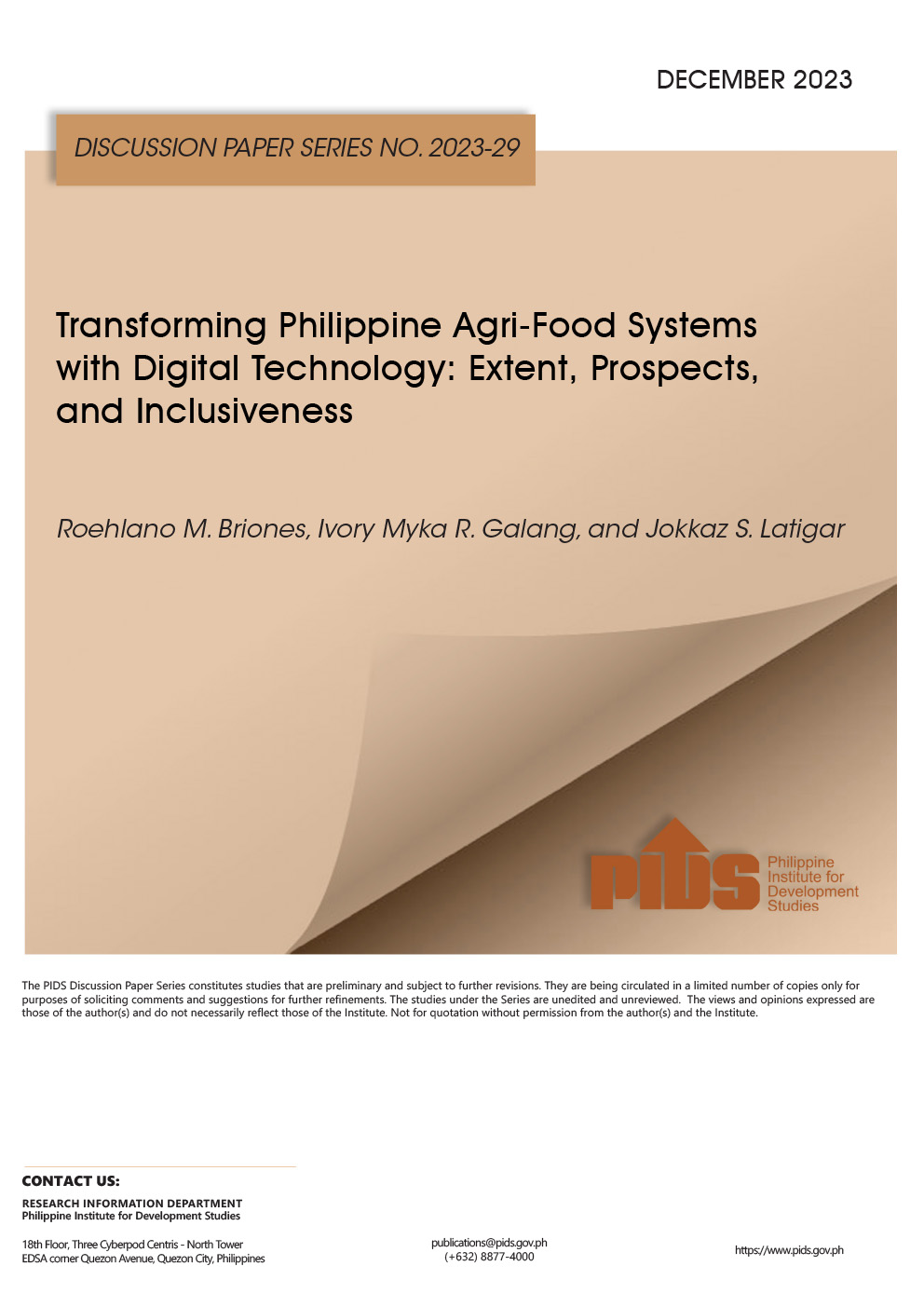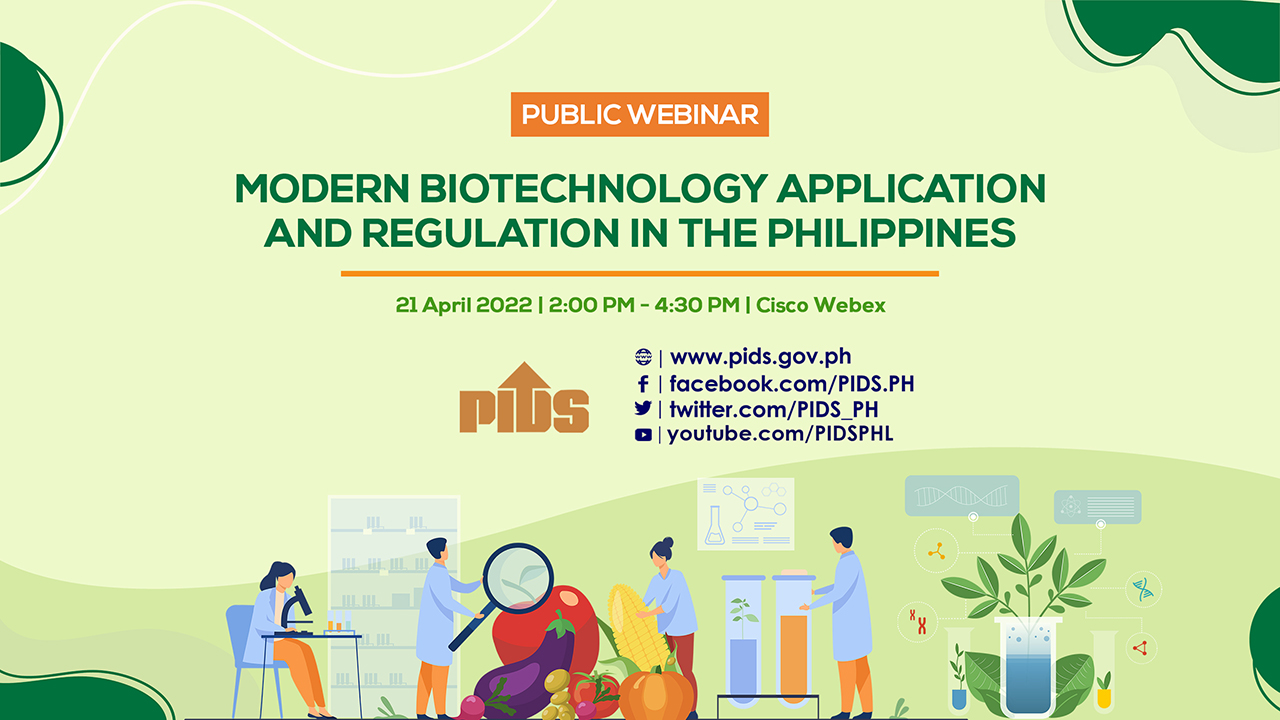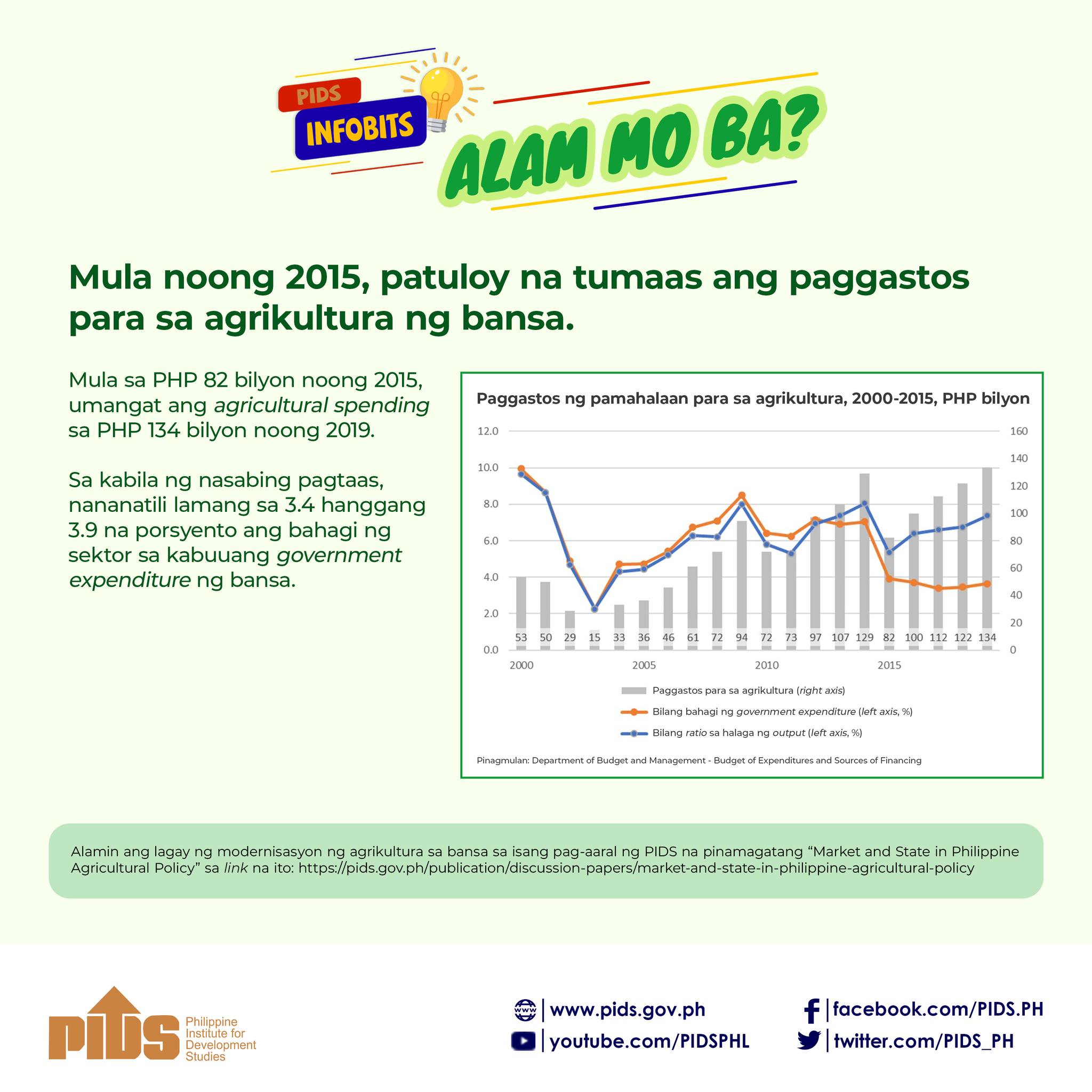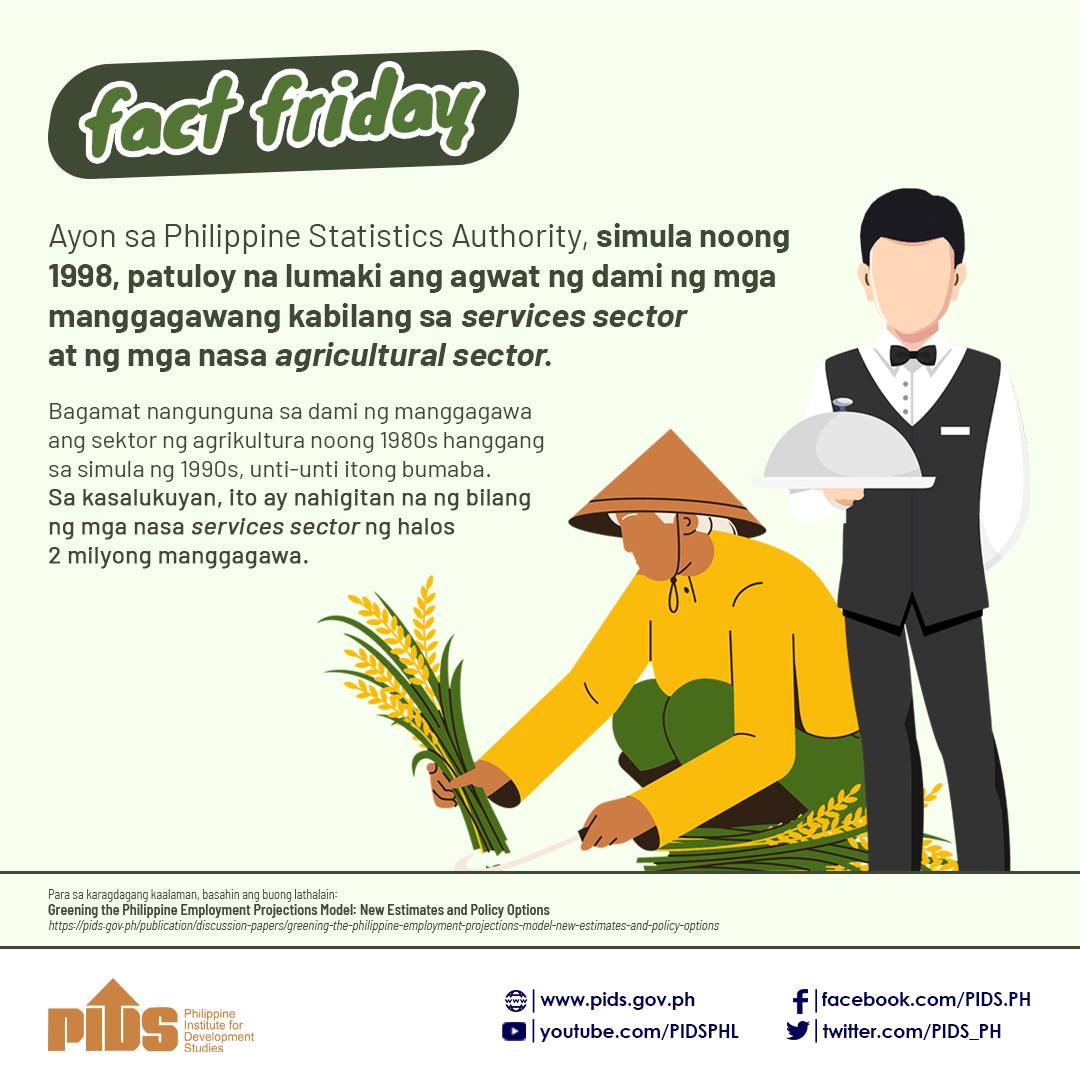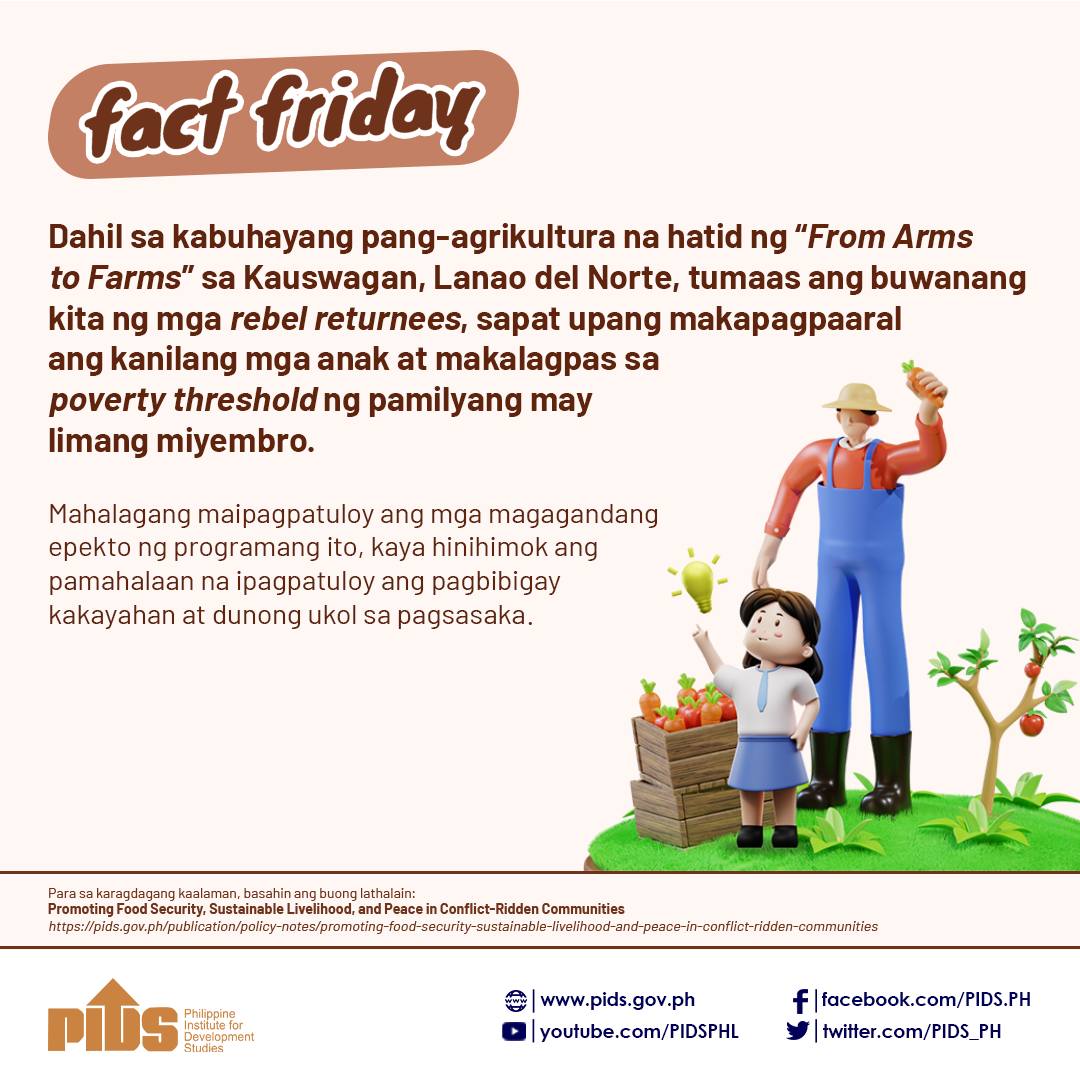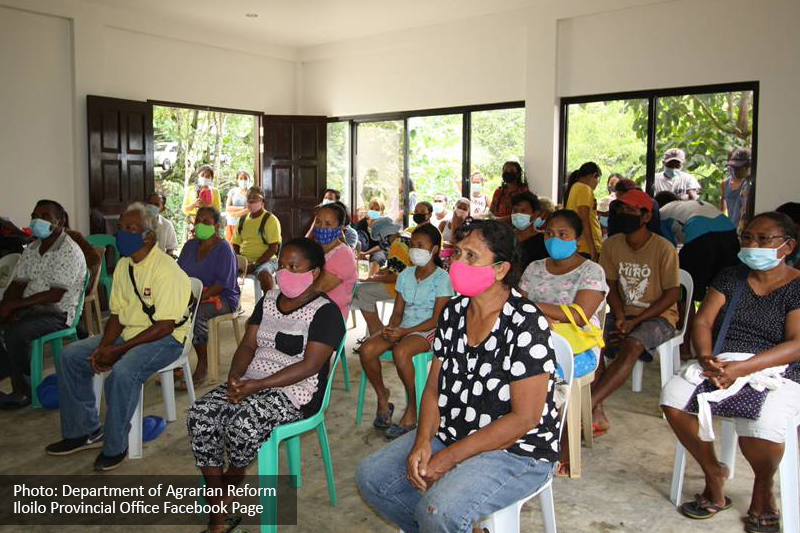
Farmer organizations such as agrarian reform beneficiary organizations (ARBOs) facilitate smallholders’ participation in the agriculture value chain.
According to a study released by state think tank Philippine Institute for Development Studies (PIDS), farmers’ membership in organizations like ARBOs “lowers their transaction costs, assists them in getting better contract offers from buyers, and enables them to access resources and skills training”.
ARBOs become more relevant as farmers move to higher-level value chains, particularly postharvest and marketing activities.
However, PIDS Vice President Marife M. Ballesteros and Research Specialist Jenica A. Ancheta found that many farmer organizations in the country, such as ARBOs, have low level of organizational maturity and are mainly formed to access funding.
Citing the Department of Agrarian Reform’s (DAR) information technology-enabled maturity assessment scores, Ballesteros and Ancheta noted that only 10 percent of ARBOs in the country are classified under the high maturity level, about 46 percent have low organizational maturity, while the rest have mid-level maturity.
They observed that many participating ARBOs (PARBOs) are “not organizationally functional”. Based on their research, a significant number do not practice capital build-up and savings mobilization. They also identified other prevalent issues, such as the inability to attract new members, low and declining membership caused by members’ withdrawal, and mismanagement.
They also noted that ARBOs tend to “be loosely organized and may become inactive or reorganized after access has been achieved”. The distribution of ARBO capital showed that the equity generated from members is limited, making it difficult to sustain their operations and finance value-adding activities, especially those requiring capital investments.
Given these challenges, it is possible that PARBOs are “mainly organized to receive the intervention”. This means farmers only self-organize to satisfy the requirements to put up a project, but the organization's sustainability is not their main concern. It is most likely that group activities fade away at the end of the projects.
To address these issues, Ballesteros and Ancheta offered some recommendations, such as motivating farmer members to commit to the organization through equity participation.
Another recommendation is to urge farmer-organizations to establish enterprises that will generate income for their members. Participation in higher value chain requires entrepreneurial development and an organization to manage the enterprise. Thus, ARBOs should have a high level of organizational maturity and are financially capable to do so.
Lastly, the authors recommended capacitating farmer-organizations on building alliances or networking. For instance, through DAR’s “big brother” strategy, lead ARBOs (LARBOs) or mature farmer-organizations are expected to assist PARBOs that have yet to reach sufficient organizational and financial maturity by sharing their expertise in operations and management. According to the study, the “big brother” strategy works when there are strong alliances or linkages among farmer organizations. ###
According to a study released by state think tank Philippine Institute for Development Studies (PIDS), farmers’ membership in organizations like ARBOs “lowers their transaction costs, assists them in getting better contract offers from buyers, and enables them to access resources and skills training”.
ARBOs become more relevant as farmers move to higher-level value chains, particularly postharvest and marketing activities.
However, PIDS Vice President Marife M. Ballesteros and Research Specialist Jenica A. Ancheta found that many farmer organizations in the country, such as ARBOs, have low level of organizational maturity and are mainly formed to access funding.
Citing the Department of Agrarian Reform’s (DAR) information technology-enabled maturity assessment scores, Ballesteros and Ancheta noted that only 10 percent of ARBOs in the country are classified under the high maturity level, about 46 percent have low organizational maturity, while the rest have mid-level maturity.
They observed that many participating ARBOs (PARBOs) are “not organizationally functional”. Based on their research, a significant number do not practice capital build-up and savings mobilization. They also identified other prevalent issues, such as the inability to attract new members, low and declining membership caused by members’ withdrawal, and mismanagement.
They also noted that ARBOs tend to “be loosely organized and may become inactive or reorganized after access has been achieved”. The distribution of ARBO capital showed that the equity generated from members is limited, making it difficult to sustain their operations and finance value-adding activities, especially those requiring capital investments.
Given these challenges, it is possible that PARBOs are “mainly organized to receive the intervention”. This means farmers only self-organize to satisfy the requirements to put up a project, but the organization's sustainability is not their main concern. It is most likely that group activities fade away at the end of the projects.
To address these issues, Ballesteros and Ancheta offered some recommendations, such as motivating farmer members to commit to the organization through equity participation.
Another recommendation is to urge farmer-organizations to establish enterprises that will generate income for their members. Participation in higher value chain requires entrepreneurial development and an organization to manage the enterprise. Thus, ARBOs should have a high level of organizational maturity and are financially capable to do so.
Lastly, the authors recommended capacitating farmer-organizations on building alliances or networking. For instance, through DAR’s “big brother” strategy, lead ARBOs (LARBOs) or mature farmer-organizations are expected to assist PARBOs that have yet to reach sufficient organizational and financial maturity by sharing their expertise in operations and management. According to the study, the “big brother” strategy works when there are strong alliances or linkages among farmer organizations. ###

